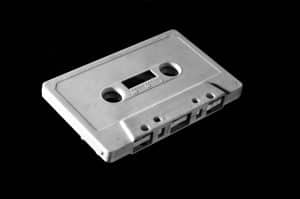Mycelium-Powered Gadgets: Fungal Batteries for Eco-Conscious Tech
In today’s fast-paced and technology-driven society, one of the biggest concerns is the negative impact on the environment. As we continue to rely on traditional energy sources, we are depleting the earth’s natural resources and damaging our planet in the process. However, there is a new and innovative solution being developed that aims to not only provide clean energy but also promote sustainability – mycelium-powered gadgets. These fungal batteries are set to revolutionize the tech industry, offering a greener and more eco-friendly alternative to traditional energy sources.
The Power of Mycelium
Mycelium, also known as the “root system” of mushrooms, is a natural fungus that has been used for centuries in medicine, food, and textiles. However, recent studies have revealed another incredible use for this versatile organism – as a source of clean and sustainable energy. Mycelium has the ability to break down various organic materials and convert them into energy-producing compounds, making it an ideal candidate for green technology.
Fungal Batteries: The Future of Eco-Conscious Tech
One of the most exciting developments in mycelium-powered gadgets is the creation of fungal batteries. These batteries are made from mycelium and other natural materials such as biodegradable polymers and metal nanoparticles. The mycelium acts as the energy source, breaking down the organic material and producing electricity through a process known as redox reactions. This sustainable and renewable energy source is not only environmentally friendly but also highly efficient.
Unlike traditional batteries, which require rare and valuable metals, fungal batteries use readily available and biodegradable materials. This not only reduces the carbon footprint but also makes them more affordable and accessible to a wider range of consumers. Additionally, mycelium batteries have a longer lifespan than traditional batteries, reducing the need for frequent replacements and further decreasing environmental impact.
Applications of Mycelium-Powered Gadgets
The potential applications of mycelium-powered gadgets are endless and could have a major impact on the tech industry. These fungal batteries can be used to power a wide range of devices, from small household items such as lamps and speakers to larger gadgets like smartphones and laptops. They can even be integrated into buildings and infrastructure to provide sustainable energy on a larger scale.
Promoting Sustainability in Tech
The use of mycelium-powered gadgets can greatly reduce the environmental impact of the tech industry. With the rapid advancement of technology comes the constant need for energy, and traditional sources are not sustainable in the long run. By incorporating mycelium batteries into our devices, we can greatly reduce our carbon footprint and promote a more sustainable future for our planet.
Furthermore, the production of mycelium batteries is a much more environmentally friendly process compared to traditional battery manufacturing. The use of natural and biodegradable materials means that there is no harmful waste or pollution, making it a more eco-conscious option for the production of tech gadgets.
The Road to a Greener Future
Mycelium-powered gadgets are still in their early stages of development, but the potential impact they can have on our environment is promising. As the demand for eco-friendly and sustainable technology continues to grow, it is crucial that we turn to innovative solutions like mycelium batteries. By incorporating this technology into our everyday lives, we can move towards a greener and more sustainable future for generations to come.
The Future is Fungal
In conclusion, mycelium-powered gadgets offer a glimpse into a future where technology and sustainability go hand in hand. By harnessing the power of this incredible organism, we can create a more eco-conscious and greener world. As the technology continues to evolve and improve, it’s only a matter of time before mycelium-powered gadgets become a staple in the tech industry. Let’s embrace the potential of this fungal wonder and work towards a more sustainable future for our planet.










